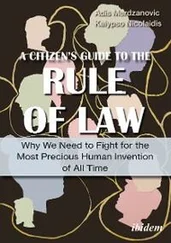The problem for the CIA, as with all of their home-brewed revolutions, was creating an invading force powerful enough to win… but not so strong that it would reveal the American backing. The invasion, in essence, had to be Cubanized — made to look unprofessional. As events later proved, unprofessional military operations came quite easily to the CIA.
Like a Broadway show working out the kinks on the road, the CIA held a preview invasion. In May 1960 the agency conquered Swan Island — “Bird Drop Island” — a lonely outpost in the western Caribbean, which was coated in the stuff. The CIA set up its own radio transmitter to broadcast anti-Castro messages into Cuba. To capture Swan (Codename: Operation Dirty Boots) required a secret deployment of a destroyer to evacuate some drunken Honduran students found partying on the island. The pre-invasion reviews: two thumbs up.
To train the rebel army, in July 1960 Bissell established a base in a remote area of Guatemala, with the help of the country’s superfriendly president Miguel Ydigoras Fuentes. The camp grew as the CIA flew in more Cuban fighters, mostly recruited from the pool of cranky exiles around Miami, who trained under the eyes of sunburned CIA trainers and army drill masters disguised in civilian clothes and sporting aliases, to keep up the fiction that America was in no way involved. The growing force was named Brigade 2506 after an early volunteer, secret ID number 2506, died in training. In a shockingly clever twist, the CIA gave volunteers ID numbers starting with 2500 to fake out Castro on the size of the force, should he happen to discover its existence. This turned out, unfortunately, to be one of their craftier moves.
One complication with Brigade 2506 was the high rate of rebel soldiers going AWOL. When the CIA found the rebels were taking off to frolic in a distant brothel, the agency didn’t hesitate to make the logical move; they opened a whorehouse on the base. For security reasons the whores were recruited from El Salvador and Costa Rica.
A larger issue was that security of the plans was a top priority. If word of the CIA’s project leaked, it would destroy the myth that the American invasion of Cuba was organically Cuban. But in mid-1960, the Miami Herald discovered Cubans being trained for war and planned to run a story on the whole affair. Pressure from the U.S. government, however, killed the story. On October 30, 1960, a Guatemalan paper ran an article about the training camp, which was largely ignored in the United States, as often happened to events in Guatemala. Then on January 10, 1961, the New York Times ran a front-page story disclosing the CIA training of Cuban guerrillas. Now the cat was out of the bag, it seemed. But Bissell and company remained unperturbed, convinced that few people actually paid attention to the front page of the Times .
After Kennedy’s election in November 1960, Bissell had briefed him on the plan. The young president had been as uninterested as everyone else. Bissell tried to get Kennedy to focus on the plan but failed in maneuvering the young president into green-lighting the project.
As the invasion planning went forward under Kennedy’s new administration, it occurred to only one key person during the planning, Antonio de Varona, one of the Cuban exile political leaders, that the plan’s math hardly spelled success: the invasion brigade of a few hundred men would face about 200,000 Cuban soldiers. Bissell had a one-word response that calmed everyone: “umbrella.” The invasion would be protected by an umbrella of air power, one of the inviolable laws of modern warfare. American planes would lay waste to any ground forces the invaders would meet. The umbrella was not only the key to victory; it was a sedative for restive and questioning minds. The umbrella would solve all problems.
A bigger problem that nobody seemed to notice was the lack of any clear chain of command for the operation, a gross violation of basic military strategy. While Bissell created the plan, and the CIA controlled every aspect of the operation, Kennedy retained final authority on all decisions. He lacked, however, a firm grasp of the details. The lack of clear U.S. operational lines of control was matched by the paralysis of the rebel Cuban leadership. For example, the main ground force, Brigade 2506, reported to no one in particular. Various groups vied for control: some were former Batista cronies, some were disgruntled hangers-on from Castro’s entourage, others were former government leaders. They hated and distrusted one another. Each had his own idea of how a post-Castro government should look, with each one seeing himself as the next top dog. If the invasion succeeded, it was not clear who would take over for Castro. It was a revolution without a revolutionary.
Despite the mushrooming cloud of problems, Bissell remained convinced that none of them were unsolvable and that the correctness of getting rid of Castro would swing Kennedy to his side. Bissell’s interactions with Kennedy throughout the early months of 1961 confirmed this, as the new president rarely asked probing questions whenever Bissell swung by the White House to update Kennedy on his invasion plans.
As a result Bissell’s little invasion plan began to suffer from scope creep, which he conveniently forgot to mention. The series of small infiltrations designed to inflame an internal Cuban uprising had morphed into a mini D-Day, complete with a beach assault from amphibious boats and the motley crew of Cuban exile rebels standing in for a division of Marines. He consulted no one but simply tried to bamboozle the new president into agreeing to what was quickly becoming a full-scale invasion.
On March 11, an alarmed Kennedy rejected Bissell’s mini D-Day as overblown. And he wanted the plan reworked to ensure a 100-percent organically Cuban provenance. But it still wasn’t canceled. Bissell stomped off to massage his plan.
Kennedy was holding true to his lifelong predilection of getting exactly what he wanted, in this case a double victory to start off his presidency. There was no reason Castro couldn’t be crushed and the whole operation hidden behind a well-tailored cloak of invisibility. Like the “help” his father provided to secure his election or the beautiful “secretaries” he kept stashed in the basement of the White House, he didn’t see any reason whatsoever to suffer any blemishes on the sheen of perfection on his shiny, new administration. He seemed to have full confidence that the CIA could pull this off without him having to even miss his weekend sail off the Cape.
In late March 1961, a month before the invasion, Bissell came back to Kennedy with a new softer version of the invasion, one that included a change that Kennedy never bothered to understand. It was still a military invasion, just slightly smaller. But now its location had moved from the foot of the guerrilla-friendly Escambray Mountains to about sixty miles away in the swampy, isolated Bay of Pigs. Unrealized by Kennedy, this change meant that if the invasion failed, the rebels could not simply melt into the mountains as guerrillas to continue the fight and continue the fiction that the invasion was a “100 percent Cuban affair.” Kennedy obviously had not thought the whole thing through, and consulting a new map was not part of Kennedy’s approval process. The young president was a man of action without the fail-safe backup his father’s money and planning had provided. The confident Bissell assured him the plan would succeed, even better than in Guatemala. Kennedy was caught in a trap: if he canceled the operation he would look weak — both to the Republicans and to the Russians.
One thing remained the same, though. The deciding factor of the entire invasion was control of the air — the key to modern warfare. If the rebels controlled the skies, they could land reinforcements at will. But if Castro had air superiority, he would pick off the rebel ships, and the invading force would wither on the beaches. It was obvious, given Kennedy’s insistence on maintaining the total veil of secrecy, that the United States could not simply flood the skies with jets emblazoned with USAF. The rebels needed their own air force, and Bissell gave it to them.
Читать дальше












